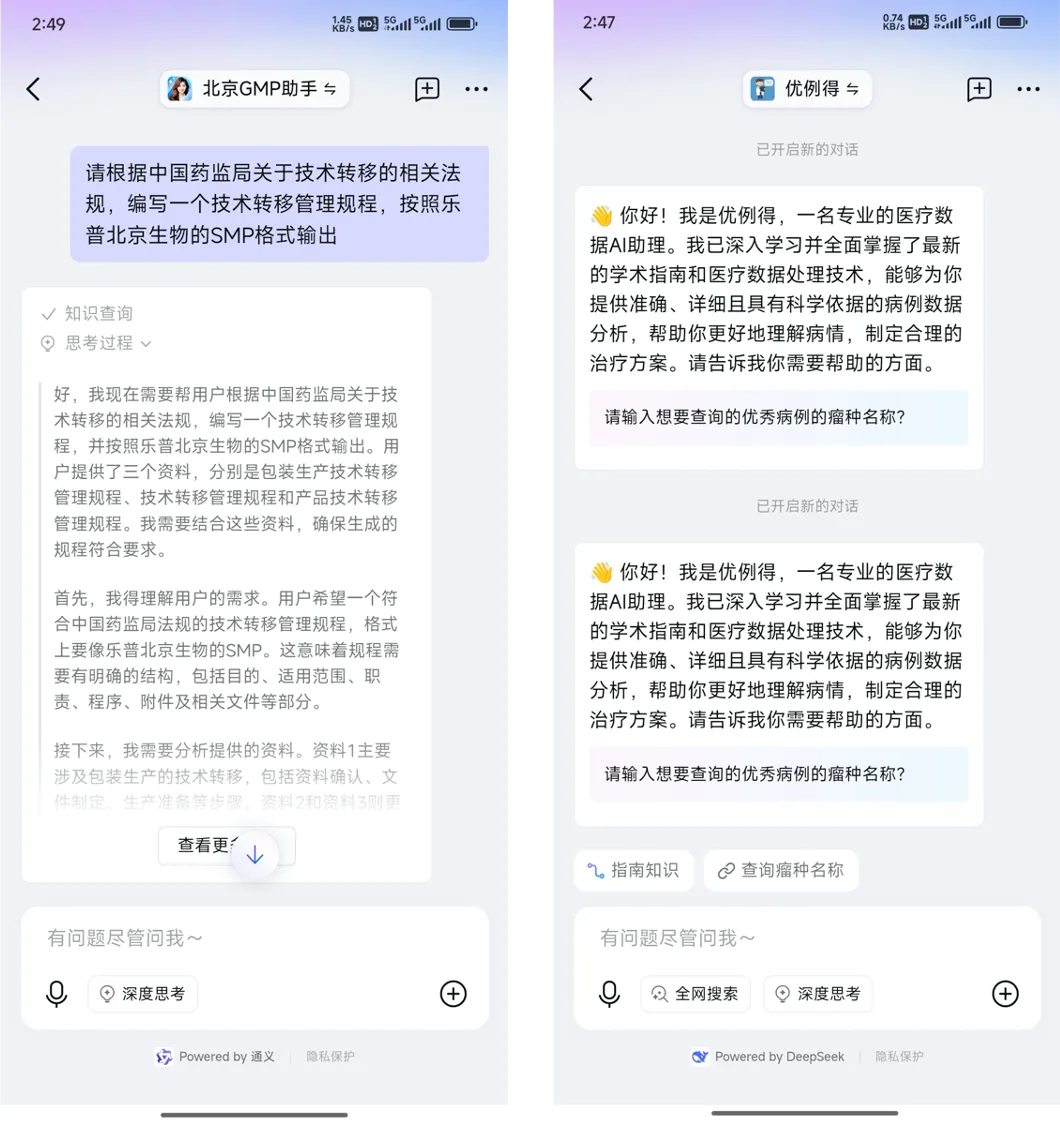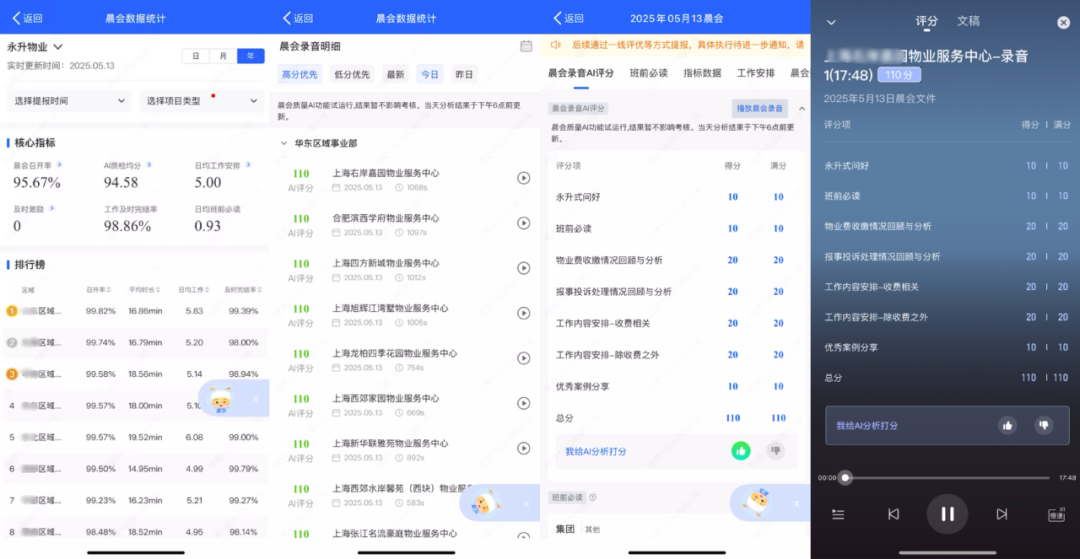AI Implementation: Beyond Superficiality, 12 Enterprises Find Productivity Answers on DingTalk
![]() 07/31 2025
07/31 2025
![]() 707
707
Introduction: In the age of AI, the true measure of production transformation is not the quantity of AI functions utilized, but rather the depth of AI integration into the entire business process, reshaping production cores and achieving exponential efficiency gains.

Author: Lu Yan | Produced by Lishi Business Review
1
Elad Gil, a prominent AI investor in Silicon Valley, recently published a blog post asserting the clarity of the AI market, indicating that the market has begun to take shape. Over the past four years, AI has evolved from a technological fog to a commercial marathon, with improved model capabilities validating various AI applications across programming, law, medical record organization, customer service, search reconstruction, and more.
This evolution aligns with the AI practices of 12 Chinese enterprises showcased in DingTalk's AI case collection at the 2025 World Artificial Intelligence Conference.
In my research on these enterprises, I found that Chinese firms' AI exploration has transcended the initial question of whether to adopt AI, but now grapples with how to effectively implement it. Lepu Biotechnology, for instance, faces challenges in real-time case data retrieval due to departmental silos. AIWEI Electronic engineers are bogged down by repetitive consultations, hindering R&D progress. Yongsheng Service's quality inspection team used to inefficiently sift through recordings. These pain points underscore a common issue: AI that addresses single-point efficiency without embedding into the entire production process remains a mere add-on.
In the current AI boom, many enterprises remain superficial in their AI usage, employing it for tasks like intelligent customer service, report writing, and meeting notes. While AI has become an efficiency tool for certain individuals and tasks, it has yet to significantly enhance overall enterprise productivity or alter production cores.
What excites me is that DingTalk and these 12 enterprises are enabling AI to permeate processes, data, and collaboration, serving as the underlying operating system for enterprise operations.
The AI practices of these 12 enterprises from diverse industries demonstrate AI's universal applicability. By embedding AI into critical business processes like R&D, production, marketing, sales, service, human resources, administration, finance, and decision-making, they are truly transforming enterprise production cores.
2
The production method refers to the means of realizing material resources necessary for social life, encompassing both productive forces and production relations. Historically, only two types of changes can be considered as transformations in production methods: those driven by changes in production relations (e.g., feudalistic, capitalist, and socialist methods) and those driven by advances in productive forces (e.g., stone, iron, steam engine, electrical, and information technologies). These are termed production method changes because they reshape traditional processes and achieve exponential efficiency gains.
Artificial intelligence is poised to bring about such changes, with its significant potential to reshape production processes. The enterprise cases released by DingTalk illustrate how AI technology, when connected with enterprise employees, data, and workflows, creates unprecedented efficiency improvements.
Take Lepu Biotechnology, an innovative biopharmaceutical company in oncology. Sales staff often receive inquiries from doctors about clinical success cases for specific drugs. Due to the diversity of tumors and patients, sales staff had to consult the medical department for each query, leading to delays and inefficiencies. In response, Lepu Biotechnology established a pathology library on DingTalk and developed an AI assistant for sales staff. By conversing with the AI assistant, sales staff can instantly access case reports and success stories, promptly responding to doctors' inquiries without internal delays. The medical department's part-time medical personnel can now focus on maintaining the case library rather than answering customer queries.

Similarly, AIWEI Electronic, a chip design company, faced challenges with customers' technical queries. To address this, AIWEI Electronic collaborated with DingTalk to create an intelligent customer service system that understands chip expertise and accurately answers technical questions. This system has significantly improved customer satisfaction by providing 7*24-hour instant responses, freeing technical experts from repetitive tasks and allowing them to focus on R&D and innovation.
Cainiao Network, a global logistics technology service group under Alibaba, operates in over 20 countries with tens of thousands of employees. Providing localized HR services that comply with local policies and cultures is challenging. With DingTalk's assistance, Cainiao Network established a shared knowledge base covering various professional fields and developed "Cainiao AI." This AI assistant independently learns from the knowledge base and provides accurate answers to employees' questions, answering over 1,500 questions from more than 500 employees daily. This has reduced the number of knowledge base administrators by 30% and increased the knowledge Q&A rate to nearly 90%, significantly enhancing the efficiency and employee experience of mid- and back-office departments.
The cases of Lepu Biotechnology, AIWEI Electronic, and Cainiao Network illustrate a common thread: fundamentally disrupting business process relationships between customers, employees, and business personnel. By introducing AI assistants, they have realized new business processes, transformed organizational structures and functions, and achieved exponential efficiency gains, reshaping production methods.
Beyond customer service and employee service, AI is also transforming enterprises' operating methods in critical areas like production, sales, quality inspection, and decision-making management.
Yongsheng Service, a leading property service provider in China, manages over 1,000 projects nationwide. Ensuring standardized management, uniform service quality, and maintaining business competitiveness is paramount. Yongsheng Service focuses on the quality of morning meetings as a key management action. However, analyzing morning meeting recordings from various projects was a cumbersome and error-prone task. Leveraging DingTalk's AI capabilities, Yongsheng Service created a morning meeting management system that intelligently analyzes meeting content, assesses compliance with standards, and provides detailed scoring. This has liberated headquarters management from tedious work, reducing the team size from 15 to 3 and increasing per capita efficiency by 5 times, with estimated cost savings of nearly 3 million yuan.

Belle Fashion, a women's shoe retailer with tens of thousands of sales associates, faced challenges in training them systematically. In late 2024, Belle Fashion launched "Bai Lian AI," an AI practice product based on DingTalk's AI and audio-video technology, turning the tide by enhancing sales associates' product knowledge and sales skills.
"Bai Lian AI" integrates Belle Fashion's comprehensive FAB (Feature, Advantage, Benefit) database, encompassing the strengths, unique selling points, and sales contexts of each shoe style, alongside core product data such as brand concepts and standardized sales pitches, including those tailored for popular brands. Sales associates simply upload their practice videos to "Bai Lian AI," which then analyzes their performance from multiple angles, offering professional insights. Based on these suggestions, associates can refine their sales pitches and enhance their skills. "Bai Lian AI" compiles post-practice performance data, amassing a vast collection of business-oriented sales pitch videos, amassing rich simulated practice experience, and transforming it into valuable business data assets. This approach revolutionizes traditional training methods by seamlessly integrating training content with real-world sales interactions, transforming training into simulated Q&A sessions with Bai Lian, accelerating sales associates' learning and growth, ultimately optimizing sales opportunities and closing rates.
The Xuejun Primary School Education Group in Hangzhou, with its four campuses and numerous complex operations, posed significant challenges for General Principal Zhang Junlin using traditional management methods. In late 2022, the Group collaborated with DingTalk to develop "Xuejun Brain 2.0," introducing "AI Principal," a dedicated assistant for Zhang Junlin. Through "AI Principal," Zhang Junlin can instantly access detailed business data, gaining a comprehensive overview. Without the need to be physically present in multiple locations, he can manage across campuses, stay abreast of real-time campus-specific situations, and make timely, accurate decisions.
Dongcheng Group, a leading domestic hotel chain, has been at the forefront of exploring AI's potential in core business scenarios. In 2024, the Group deeply integrated DingTalk's AI capabilities with its industry-specific contexts, developing the "MaozhuaGO-AI" collaborative base. This not only provides efficient AI collaboration spaces for various outlets but also equips executive decision-making with "intelligent brains," offering intelligent algorithms and precise data analysis for store investors, significantly boosting operational efficiency.
Despite being in the traditional agriculture and livestock industry, Xinlian Poultry is at the cutting edge of exploring new AI-driven production methods. This is attributed to its founder, Chen Hui, a programmer by profession, who naturally excels at integrating new technologies with business operations. Post-large model technology adoption, Chen Hui AI-ified the company's legacy applications and systems, culminating in the creation of "Ancestor Black Chicken Management Application Assistant" on DingTalk. This assistant conducts multi-dimensional data analysis, including sales volume and product proportion, and communicates results in natural language, essentially serving as an on-demand data analyst.
"Morning meeting management" is the cornerstone of Yongsheng Service's business administration, while "front-line sales associates" are pivotal in Belle Fashion's business model. "Elementary school principals" are the linchpins of school education groups, "investment analysis" is crucial for hotel chains' expansion, and "data analysis" underpins Xinlian Poultry's founder's decision-making. These cases illustrate that AI is not merely a tool for basic operations but has penetrated into enterprises' strategic business scenarios, addressing their most intricate operational challenges. AI is not a rigid tool requiring human adaptation but a highly adaptable underlying system for various contexts, subtly reshaping work logic.
3
Why did 12 AI-focused enterprises from diverse industries unanimously choose DingTalk to explore AI-era production methods?
DingTalk's value lies in providing the foundation for embedding AI.

First, DingTalk's universal reach among employees.
Unlike personal AI use, corporate AI applications demand uniformity, collaboration, and security. Companies need an AI platform seamlessly integrated into most employees' daily workflows, not just a tool. To achieve this integration, a unified digital infrastructure accessible to all employees is essential. As a collaborative office platform, DingTalk is the only enterprise-wide digital foundation that reaches all employees, is frequently used, encompasses various workflows, and is ideally suited as the foundation for embedding AI across business processes.
Second, openness and data capabilities.
For large model technology to reach its full potential, access to massive high-quality data is crucial. Corporate data accumulation hinges on comprehensive digitization. An increasingly accepted expert view underscores this: "Digitization precedes intelligence. Without systematic digitization, intelligence is elusive for enterprises." DingTalk is not just a collaborative office platform but also a highly open application development platform. This openness enables it to connect with diverse professional application systems both within and outside the enterprise, possessing the richest enterprise-specific data and providing high-quality, abundant data for AI function development.
Third, AI capabilities.
Since the advent of large model technology, Alibaba Group has been one of China's most committed and heavily invested technology giants. Its self-developed Tongyi Qianwen large model excels across multiple dimensions. As an Alibaba Group member enterprise, DingTalk can share its most advanced large model capabilities, highly valued by many companies.
As a digital foundation accessible to all employees, DingTalk facilitates AI's transition from the lab to specific business processes like sales scripts, production processes, and service details. As an open data-connected application platform, DingTalk transforms information scattered across various systems into AI "fuel," enabling various successful applications. Alibaba's large model support makes integrating AI a technical possibility for traditional enterprises. These three capabilities are indispensable. Only when synergized on the same platform can AI transcend being a mere "plugin" or "tool" to become an underlying "operating system" supporting business operations, enabling a true transformation of production methods: not making people adapt to tools, but having tools reshape work logic.
The proliferation of corporate cases running on DingTalk proves that the crux of AI-era production methods lies not in the number of AI functions but in "whether AI redefines work." This fundamentally distinguishes DingTalk from other platforms: it doesn't sell AI tools but outputs a production method operating system enabling AI's roots to take hold.
As the AI era's underlying operating system, DingTalk will witness the emergence of increasingly AI-powered new production methods. These enterprises' operational efficiency gains will ultimately coalesce into industry-specific competitive advantages, fostering global competitiveness across various industrial fields. This will also be the core source of national competitive advantage.







